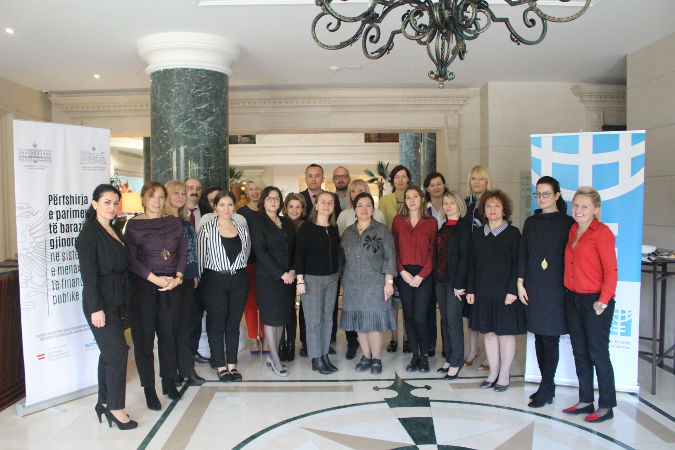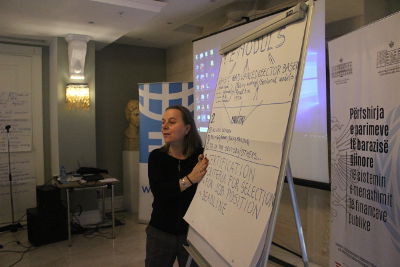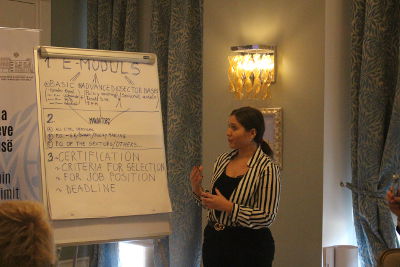E-Learning recognized as an effective way to build capacities on gender responsive budgeting in the region
Date:

Representatives of ministries, NGOs and institutes for training of public officials participated in a regional workshop organized through UN Women’s ‘Promoting Gender-Responsive Policies in South-East Europe and the Republic of Moldova’ programme in Albania on 12-14 November 2018.
The Regional Programme works with central and local governments to implement gender equality commitments and to enhance women’s participation in decision-making. As part of this, it promotes ICT-based, innovative approaches to advance gender equality. At the November workshop, participants had the chance to present their own experiences in adopting some of these approaches and to hear and learn from their regional counterparts.

In the Former Yugoslav Republic of Macedonia, for example, with UN Women support, the Ministry of Information Society and Administration (MISA) devised and introduced an e-learning module on gender mainstreaming and gender responsive budgeting as part of their E-learning platform in 2015. Now, the module is mandatory for all central level public administration. Already in 2018, 1583 civil servants have completed the basic course and 1584 users have completed the advanced course, while over 7000 registered users are still following the courses.
“We are very proud to be among the first in the region to implement an e-learning module for gender equality for public administration,” said Aleksandra Gichevska, Head of the Training Unit at MISA during the workshop. “With the other experiences shared, this workshop has helped us to reflect and to consider the next steps towards improving the platform.”
It is expected that in 2019 similar courses will be finalized in other countries. Maja Peric from the Bosnia and Herzegovina Ministry of Finance expressed her Ministry’s commitment to implementing the e-module from February 2019.
Participants also heard how in Albania the Sector for Gender Equality, in close cooperation with the Albanian School of Public Administration, had certified a module dedicated to gender equality and gender-responsive budgeting. This will become mandatory in the training institute’s curricula for the Public Administration’s gender equality employees.
Meanwhile, Andrei Petroia from the Academy for economy studies in Moldova provided insights into how an e-learning module was being implemented there. “What can be very useful for us is a combination of e-learning and one-to-one courses. This can contribute towards strengthening gender-responsive budgeting processes,” he said.

The Network of Associations of Local Authorities of South-East Europe (NALAS), supported by UN Women, also shared their experience with developing an e-learning module targeting local public administrations. The module was launched in 2016 as part of the organization’s E-Academy. It was piloted with a selected number of municipal administration representatives in the South-East Europe (SEE) region. To date, two rounds of online trainings have been implemented and there is an increased demand for translation of the module into more SEE languages.
"NALAS, through its E-academy platform, aims to create an integrated learning system for local governments, thereby increasing the level of local government professionalism. While interactive and modern approaches for developing e-learning modules are used, NALAS courses are affordable, innovative and practitioner focused,” said Semra Amet from NALAS.
The workshop was made possible with financial support from the Austrian Development Agency and the Swiss Agency for Development and Cooperation.